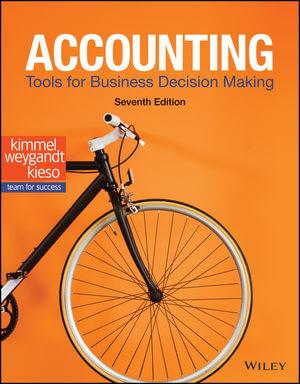Question
Agree or Disagree? And Why? Question, how standard costs are developed, and please discuss how to calculate and interpret variances for direct materials. Answer: covering
Agree or Disagree? And Why?
Question, how standard costs are developed, and please discuss how to calculate and interpret variances for direct materials.
Answer: covering costs and variance analysis. Specifically, in this chapter we'll first start with how standard costs are developed. In layman's terms standard costs are expenditures that just aren't required by an organization to produce a quality product per managerial guidelsines, but are also considered to be expenses tied to a specific industry. As exaggerated as it may sound, an example of this measure is in the investment a car dealership may make in assuring that its sales staff understand key features such as, technology, warranties, safety, basic financing options, and fuel consumption capabilities of the product they are selling. It wouldn't make any sense for the staff to learn, understand, and explain features on boats since they're not in the business of selling boats. Therefore standard costs are as previously mentioned methods of managers identifying needed products by bulk or by single unit. Standard costs can include multiple line items affiliated with raw product, assembly labor, as well as costs affiliated with overhead costs extracted from analytical data. Through the development process management can apply one of two standards of which projections can be founded on ideal standards by which companies develop their standard costs in the most perfect conditions, this is known as ideal standard. On the opposite end of the spectrum attainable standards consider increased labor costs, fluctuating material costs, and possible assembly challenges. These totals can provide us with single unit costs, or even run costs if necessary.
We understand the purpose and summation of what standard costs do for an organization, the next question is now centered around these costs which will assist with account for variances in direct material. So what is a cost variance analysis, and what is its purpose? By definition we can solve for cost variance by solving for the difference between standard costing system and the actual cost. We delve further by dissecting items such as direct material which sub-categorized as material price and the quantity of material. In labor, its broken down into labor rate variance and the labor efficiency variance. Additionally, this same process is applied for manufacturing under volume and controlled variances. Once the calculations are complete, data can be utilzed to identify potential problems in the organizations operational functions.
Step by Step Solution
There are 3 Steps involved in it
Step: 1

Get Instant Access to Expert-Tailored Solutions
See step-by-step solutions with expert insights and AI powered tools for academic success
Step: 2

Step: 3

Ace Your Homework with AI
Get the answers you need in no time with our AI-driven, step-by-step assistance
Get Started


